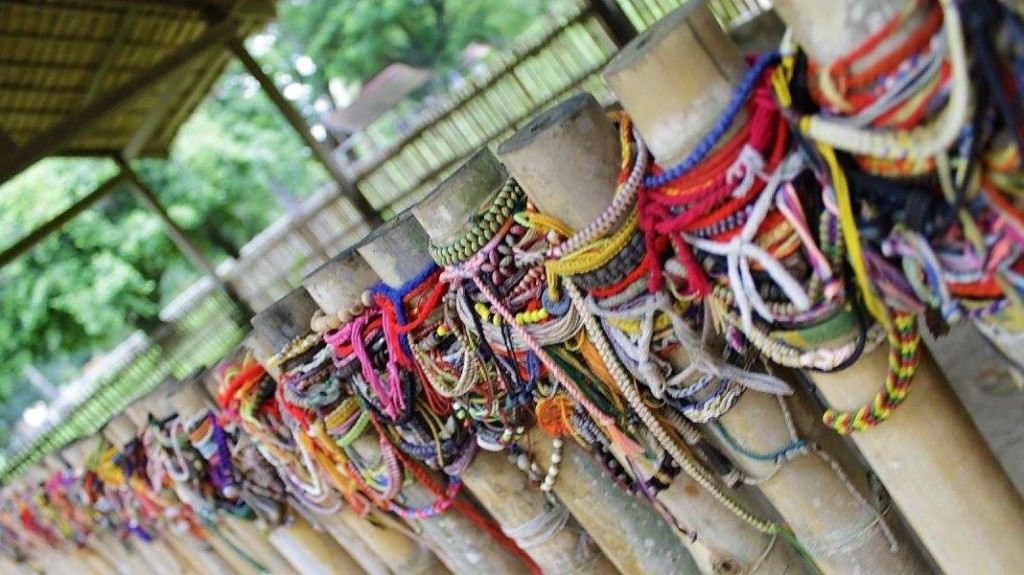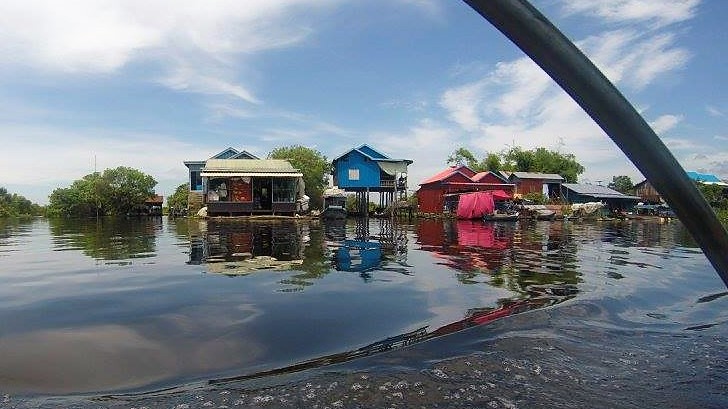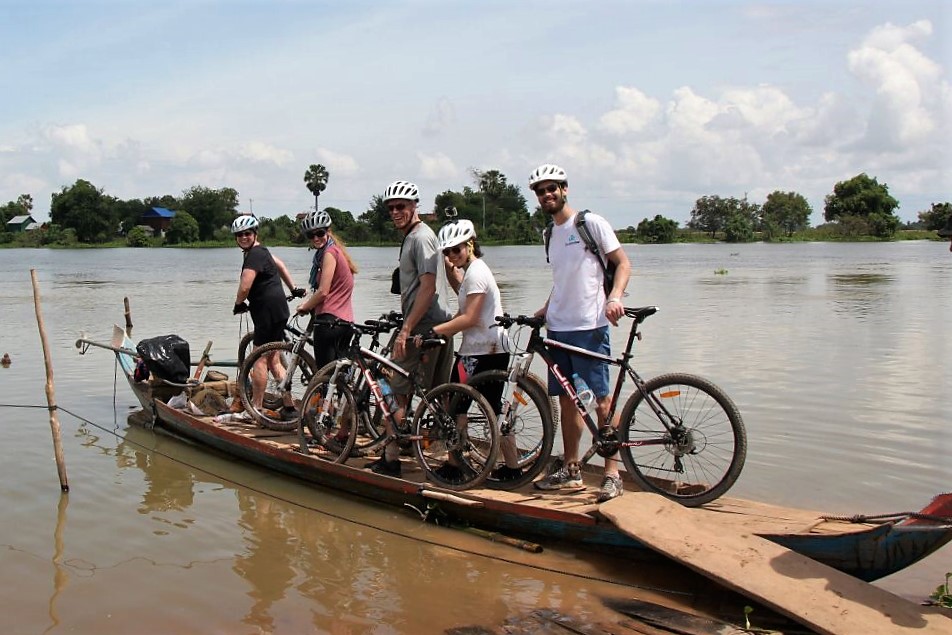Can pro-social tourism foster empathy & cross-cultural understanding?

To build empathy and understanding between hosts and guests, “pro-social” tour operators should facilitate more conversations — a “GT” Insight by Monash University PhD candidate Lourdes Zamanillo Tamborrel and Dr Joseph M Cheer.
According to the United Nations World Tourism Organisation (UNWTO), tourism accounts for around 10 per cent of global gross domestic product (GDP) and thirty percent of service exports. In recent years, and in line with the growing prominence of tourism, we have seen another interesting trend: the rise of ‘ethical’ and ‘responsible’ tourism experiences that place the exercise of tourist responsibility at the core.
We regard these trends as a demonstration of ‘pro-social tourism’ that promises to have a positive social impact for hosts while increasing traveller awareness of pressing social issues such as poverty alleviation, gender empowerment and ecological sustainability. Such concerns have risen in prominence and the consumer drive for more socially and ecologically consumption is evident.
Often, travellers seek closer and more intimate encounters with locals in order to open pathways for different ways of understanding through perspective-taking — an exercise associated with experiencing empathy with a distinct ‘Other’ that may be very different insofar as religion, culture, sexuality, among others is concerned.
The recent catastrophic terrorist incident in Christchurch, New Zealand predicated on hatred and intolerance on religious grounds highlights the ongoing urgency for greater cross-cultural understandings among peoples.
In our recently published research, we ask the question: Can encounters between travellers and hosts in tourism foster empathy?
In order to find out, we travelled from Melbourne to Cambodia with a pro-social tour operator and undertook a ten-day cycling trip that visited NGOs as part of the itinerary. The company structured cycling and NGO visits in order to raise awareness of the country’s pressing social issues and made travellers aware of how to best behave and react while on tour.
Participants were interviewed before, during, and after their journey. Using exploratory methodology, we then assessed the degree to which empathy was developed, as well as examined the underlying drivers of and constraints to empathy-building.

A brief history of empathy
Before jumping into our findings, it is important to set a common frame of reference concerning empathy.
In 1907, Theodor Lipps argued that through ‘inner imitation’, people can understand the mental state of others. Titchener translated this to mean ‘empathy’ and, in 1909, Husserl and Stein further developed the concept to define empathy as an act that allows us to perceive ourselves in relation to another — through the eyes of that other.
More recently, Catherine Belzung proposed that empathy has different levels:
- affective empathy, which simply refers to experiencing shared emotion;
- “feeling concern for the Other”; and
- cognitive-empathy applied to perspective-taking.
Coplan demarcated Belzung’s third level of empathy into two further categories:
- where one imagines what is it like to be oneself in the shoes of the Other, and
- where one imagines what is it like to be the Other.
The latter allows the empathiser to recognise that ‘truth’ varies depending on one’s viewpoint and that his/her point of view is one of many plausible possibilities. This framework was applied to categorise the testimonials of participants.
Empathy on tour
Several obstacles to empathy were identified on the tour.
Language barriers made intercultural communication between hosts and guests challenging — forcing travellers to rely heavily on their own interpretations of what they saw.
Distinct power imbalances between hosts and guests conditioned the relationship — hosts often saw guests as potential sources of income, treating them deferentially to achieve a sale, while guests often saw hosts as service-providers and felt entitled to have their needs met.
Interests varied. Visits to the NGO projects only appealed to some travellers. Those who had before departure expressed a clear interest in learning from NGOs were mostly engaged. Others who were more interested in cycling found the visits somewhat inconsequential.

The proximity principle
Hazel Tucker argued that the experience of actually being at the site of committed atrocities or face-to-face with poverty, both of which tourism can facilitate, is precisely what promotes empathy.
Empathy, when it arose on tour, seemed to rely heavily on proximity. Several participants stated that ‘seeing poverty’ and how ‘happy’ Cambodians were is what led them to engage in self-reflection.
However, most people abided by Coplan’s first type of perspective-taking. They only reflected on how would it be for them to be in the shoes of the Other. For example, some participants expressed that ‘they would not be so welcoming to strangers’ or that they would likely be ‘very angry and sad’ if they had experienced the conditions that locals had.
Close conversations
Upon closer analysis, the key condition that actually prompted a shift in perspective was not exclusive to pro-social tourism at all — it was the chance to have intimate one-on-one conversations. For example, one participant expressed that talking to the NGO stakeholders allowed her to realise and reflect on her own privilege. Another said that being sick and having to ride in the van with the local driver allowed her to make friends with him and to see the world through his eyes. Several participants said that their favourite part of the trip was a cooking class where the host exchanged life stories and provided firsthand accounts about the intricacies of their culture.
Engaging in intimate and personal conversations overcome institutional and societal frameworks that would normally be highly influential. Conversations give greater authority to hosts. They shift the locus of power to allow for more open, informal, and honest discussions to occur. Conversations, in other words, help build empathy and understanding and strip back preconceived notions.
Therefore, despite the laudable objectives of pro-social tourism, it would seem that to foster empathy and cross-cultural understanding through travel, we need to get back to basics — to listen and learn through meaningful and intimate conversations.
Featured image: Solidarity bracelets at the Killing Fields, Phnom Penh, Cambodia. Picture © Lourdes Zamanillo Tamborrel, 2017.
Reference
Zamanillo Tamborrel, L. L., & Cheer, J. M. (2019). Harnessing empathy in hospitality and tourism: Are conversations the answer? Hospitality & Society, 9(1), 53 – 70. https://doi.org/10.1386/hosp.9.1.53_1
About the authors
Lourdes Zamanillo Tamborrel is a Ph.D. candidate and Master of International Sustainable Tourism Management Graduate from Monash University. Her work focuses on the social impact of pro-social tourism, addressing the role of empathy as a catalyst for change. Before engaging in research, she worked as a journalist in her home-country, Mexico, specialising in topics such as social entrepreneurship and solutions journalism.

Joseph M Cheer is Professor at the Center for Tourism Research, Wakayama University, Japan. Dr Cheer previously lectured in the School of Languages, Literatures, Cultures & Linguistics (LLCL) at Monash University. Joseph is board member, International Geographical Union (IGU) Commission on Tourism and Leisure and Global Change and Steering Committee Member Critical Tourism Studies (CTS) Asia Pacific. He published Tourism Resilience and Adaptation to Environmental Change and Tourism Resilience and Sustainability: Adapting to Social, Political and Economic Change (both 2018 with Alan Lew and published by Routledge). Joseph’s forthcoming books include Overtourism: Excesses Discontents and Measures in Travel and Tourism (with Claudio Milano & Marina Novelli) and Modern Day Slavery and Orphanage Tourism (with Leigh Mathews & Tess Guiney), both to be published by CABI in 2019.





